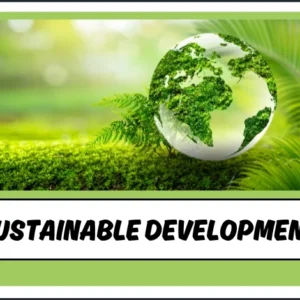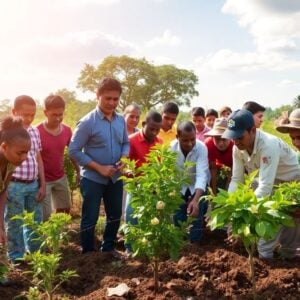The Asian Development Bank (ADB) and ACWA Power Company have signed a $51 million loan agreement to develop the Nukus 2 Wind and Battery Energy Storage facility in Uzbekistan’s Qoraozak district, located in the Republic of Karakalpakstan. This project, which will be implemented by ACWA Power Beruniy Wind FE LLC—a wholly owned subsidiary of ACWA Power—marks a historic milestone as Central Asia’s first wind power plant integrated with a utility-scale battery energy storage system.
The financing structure consists of two equal portions of $25.4 million, one from ADB’s ordinary capital resources and the other from the Leading Asia’s Private Infrastructure Fund 2, which ADB administers. Additional funding support is being provided by several parallel lenders, including the Asian Infrastructure Investment Bank (AIIB), Dutch Entrepreneurial Development Bank (FMO), Standard Chartered Bank, and Saudi EXIM.
The project includes the construction and operation of a 200-megawatt wind power plant and a 100-megawatt-hour battery energy storage system, along with the necessary transmission infrastructure. It is expected to generate approximately 727,980 megawatt-hours of clean electricity annually, which will reduce 406,170 tons of CO₂ equivalent emissions each year. In addition, it will create over 200 jobs during its construction and operational phases.
ADB Country Director for Uzbekistan, Kanokpan Lao-Araya, highlighted the importance of the project in advancing Uzbekistan’s shift toward a low-carbon energy future. By combining renewable energy generation with battery storage, the facility will not only help stabilize the national grid but also enhance energy reliability. This aligns with Uzbekistan’s target of achieving 54% renewable energy in its electricity mix by 2030.
To further support the initiative, ADB provided a $7.5 million credit guarantee, backed by the Government of Uzbekistan. This guarantee was incorporated into the project’s bidding process to mitigate financial risks and stimulate competitive pricing, leading to a lower tariff for the final project.
The Nukus 2 project is closely aligned with Uzbekistan’s broader Strategy 2030, which aims to add 25 gigawatts of renewable energy capacity and achieve a 35% reduction in greenhouse gas emissions per unit of GDP by the end of the decade. It also supports ADB’s corporate priorities related to climate resilience, gender equality, and private sector development.
This year also commemorates 30 years of partnership between ADB and Uzbekistan. Since the country joined the bank in 1995, ADB has committed more than $14.3 billion through public and private sector loans, grants, and technical assistance to support Uzbekistan’s economic development and reform agenda.
Founded in 1966, ADB is a multilateral development bank owned by 69 member countries, including 50 from the Asia-Pacific region. The bank plays a key role in promoting inclusive, sustainable, and resilient growth across the region by mobilizing strategic partnerships and deploying innovative financial instruments to tackle pressing development challenges.







